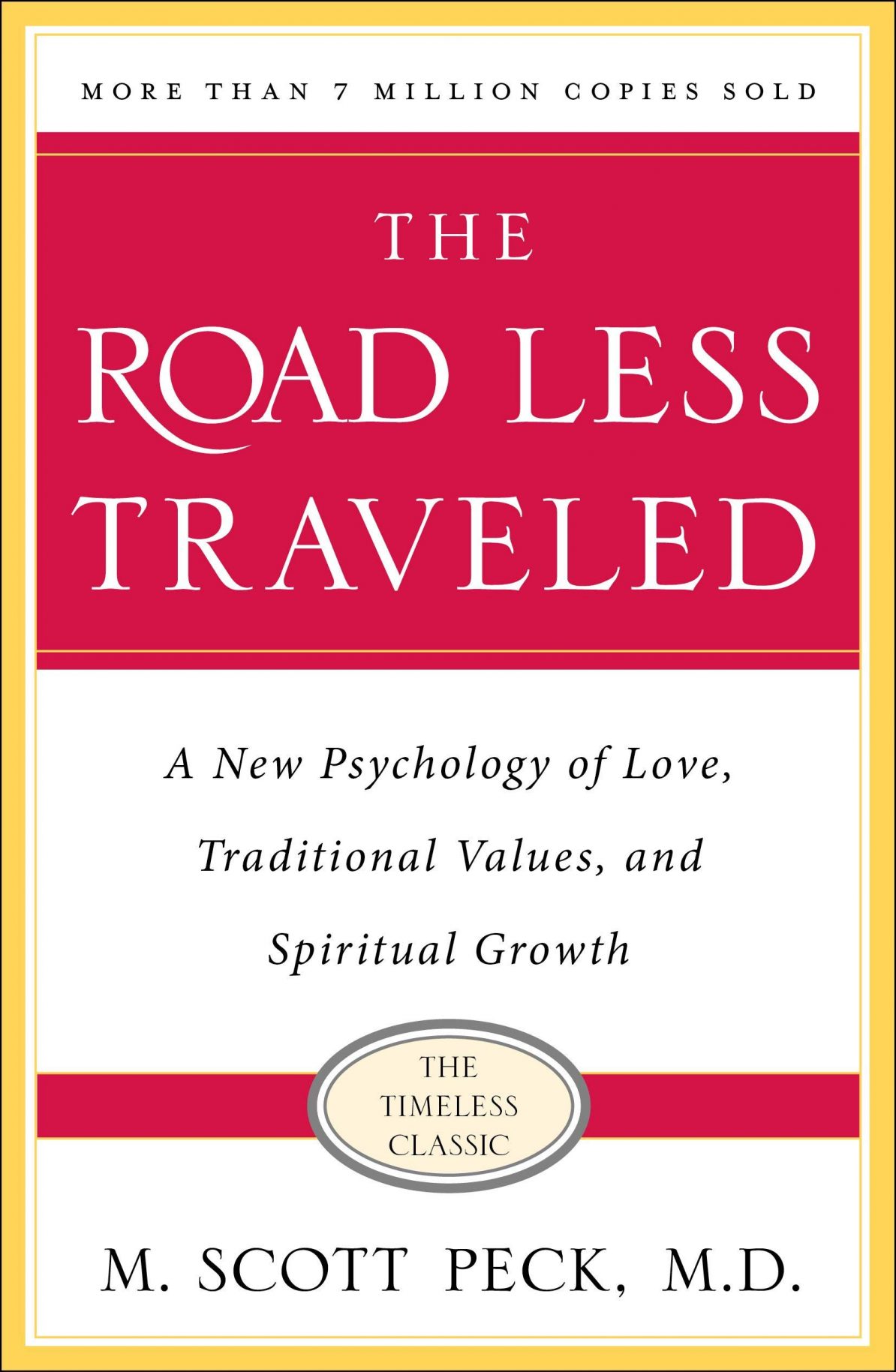

Life is difficult. This is a great truth, one of the greatest truths. The first of the “Four Noble Truths” which Buddha taught was “Life is suffering.” It is a great truth because once we truly see this truth, we transcend it. Once we truly know that life is difficult—once we truly understand and accept it—then life is no longer difficult. Because once it is accepted, the fact that life is difficult no longer matters.
一个成熟的人一定会接受而不是逃避这一点:“人生即苦难”。
Most do not fully see this truth that life is difficult. Instead they moan more or less incessantly, noisily or subtly, about the enormity of their problems, their burdens, and their difficulties as if life were generally easy, as if life should be easy. They voice their belief, noisily or subtly, that their difficulties represent a unique kind of affliction that should not be and that has somehow been especially visited upon them, or else upon their families, their tribe, their class, their nation, their race or even their species, and not upon others. I know about this moaning because I have done my share. Life is a series of problems. Do we want to moan about them or solve them? Do we want to teach our children to solve them?
很多人都把生活的苦难想象成上帝单单对他一个人的不公平,从而抱怨为什么只有自己会遇到这样的事?不成熟的人,心理上接受不了他的人生会充满各种各样的苦难这样一个事实,嘴唇上诸多抱怨,或是归责到上帝,或是归责到他人。人生即苦难,苦难即人生,是选择抱怨还是选择解决?
What makes life difficult is that the process of confronting and solving problems is a painful one. Problems, depending upon their nature, evoke in us frustration or grief or sadness or loneliness or guilt or regret or anger or fear or anxiety or anguish or despair. These are uncomfortable feelings, often very uncomfortable, often as painful as any kind of physical pain, sometimes equaling the very worst kind of physical pain. Indeed, it is because of the pain that events or conflicts engender in us all that we call them problems. And since life poses an endless series of problems, life is always difficult and is full of pain as well as joy.
生活之所以困难,是因为面对和解决问题的过程是一个痛苦的过程。
Yet it is in this whole process of meeting and solving problems that life has its meaning. Problems are the cutting edge that distinguishes between success and failure. Problems call forth our courage and our wisdom; indeed, they create our courage and our wisdom. It is only because of problems that we grow mentally and spiritually. When we desire to encourage the growth of the human spirit, we challenge and encourage the human capacity to solve problems, just as in school we deliberately set problems for our children to solve. It is through the pain of confronting and resolving problems that we learn. As Benjamin Franklin said, “Those things that hurt, instruct.” It is for this reason that wise people learn not to dread but actually to welcome problems and actually to welcome the pain of problems.
正是由于这整个遇到和解决问题的过程,生命才有意义!
What are these tools, these techniques of suffering, these means of experiencing the pain of problems constructively that I call discipline? There are four: delaying of gratification, acceptance of responsibility, dedication to truth, and balancing.
推迟满足感、承担责任、忠于事实、保持平衡
Delaying gratification is a process of scheduling the pain and pleasure of life in such a way as to enhance the pleasure by meeting and experiencing the pain first and getting it over with.
先苦后甜的重要性
In taking the time to observe and to think about their children’s needs, loving parents will frequently agonize over the decisions to be made, and will, in a very real sense, suffer along with their children. The children are not blind to this. They perceive it when their parents are willing to suffer with them, and although they may not respond with immediate gratitude, they will learn also to suffer. “If my parents are willing to suffer with me,” they will tell themselves, “then suffering must not be so bad, and I should be willing to suffer with myself.” This is the beginning of self-discipline.
自律的起点是父母的爱,父母愿意与孩子一同受苦。
Some basically unloving parents, in an attempt to cover up their lack of caring, make frequent professions of love to their children, repetitively and mechanically telling them how much they are valued, but not devoting significant time of high quality to them. Their children are never totally deceived by such hollow words. Consciously they may cling to them, wanting to believe that they are loved, but unconsciously they know that their parents’ words do not match up with their deeds.
真实的爱 vs. 空洞的爱?
This feeling of being valuable is a cornerstone of self-discipline because when one considers oneself valuable one will take care of oneself in all ways that are necessary. Self-discipline is self-caring.
自律即自爱
